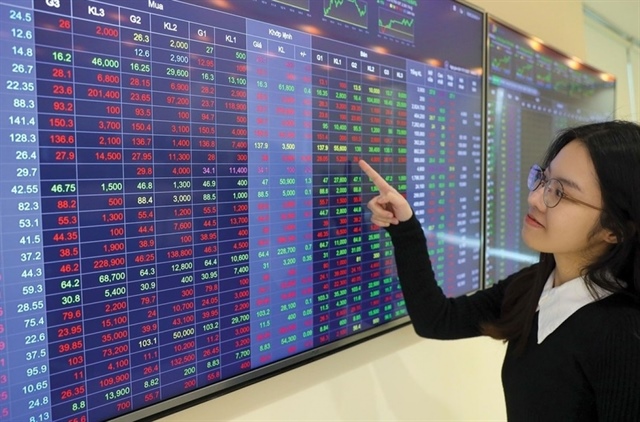Foreign institutions believe Vietnamese stocks cheap and attractive
Foreign institutions believe Vietnamese stocks cheap and attractive
The latest report by JPMorgan Chase showed the active outlook onto the Vietnam’s economy and stock market. Meanwhile, Bloomberg newswire believes that Vietnamese stocks have become cheap enough to buy in.

Dated August 24, “Vietnam Strategy Update,” the latest report by JPMorgan about the Vietnamese stock market highlighted the impacts of the arrest of Nguyen Duc Kien, former Deputy Chair of the Asia Commercial Bank, on the market, saying that the VN Index decrease, caused by the arrest, has made Vietnamese stocks become more attractive.
In general, the analysis team of JPMorgan Chase does not think these are the big worries. The low VN Index has created a more attractive starting point for the foreign investors to join the market, though the index has increased by 12 percent since the beginning of the year.
JPMorgan Chase has advised investors to buy the shares of the enterprises in the fields of consumer goods, pharmacy, infrastructure and some selected export companies. Meanwhile, investors have been advised to keep away from real estate and construction material companies’ shares.
The economic environment has been improved considerably. Especially, the inflation rate fell to 5.4 percent in July from the highest peak of 23 percent in August 2011. Vietnam witnessed the trade surplus of 100 million dollars in July instead of trade deficit. The total trade deficit of Vietnam in the first six months of the year was 58 million dollars, an encouraging result if noting that the figure was 5.8 billion dollars at the same period of the last year.
Also according to JPMorgan Chase, the inflation decreases would have two positive impacts on the national economy.
Firstly, this would lead to the monetary policies to be loosened, which would support the growth. Since the inflation rate decreases rapidly, the actual interests depositors can enjoy have been at the highest levels so far this year, despite the fact that the interest rate has decreased by 400-500 percentage points.
Secondly, the inflation decreases would help improve the macroeconomic environment and the payment balance. If the inflation rate is kept at low level, people would keep Vietnam dong.
The foreign currency reserves have increased for the first time since 2008, while JPMorgan Chase believes the reserves would continue rising in the time to come.
The finance newswire Bloomberg on August 28 also published a special report, saying that the investment opportunities have been open in the Vietnamese stock market.
With the VN Index falling by 22 percent from the highest peak so far this year, Vietnam has fallen into the bear market situation, where the stocks have become cheaper than in other regional markets after the arrest of Kien, former Chair of ACB, and then the arrest of Ly Xuan Hai, former CEO of ACB.
The P/E index of the Vietnamese stock market is now 9.4, the lowest level since May 25 and 33 percent lower than the P/E of the 141 shares – the components for calculating MSCI South East Asia Index.
Moody’s Investors Service on August 24 lowered the credit rating given to ACB Bank to B2 from B1, while leaving open the possibility of further cutting the credit rating.
Fitch Ratings has also announced the possibility of lowering the credit rating of the same bank, if its liquidity and prestige stay weak for a long time.
Nevertheless, Marc Faber, Chair of Indochina Capital, an investment fund, who is also the publisher of Gloom, Boom & Doom Report, believes that the arrests bring long term investors the opportunities to buy Vietnamese stocks when the stocks are relatively cheap.
vietnamnet






















